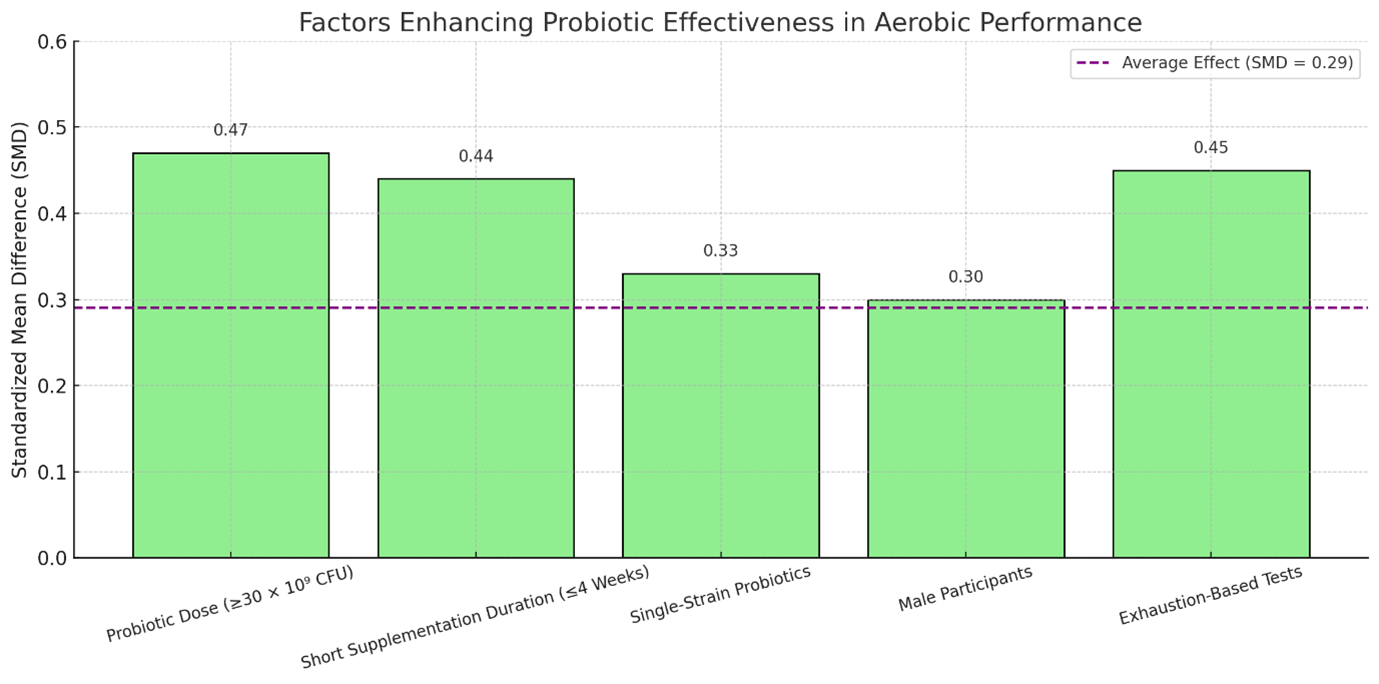Key Findings and Insights
The meta-analysis revealed a small but significant positive effect of probiotics on aerobic performance tests, as indicated by a standardized mean difference (SMD) of 0.29 (95% confidence interval [CI]: 0.08–0.50; p < 0.05).**






